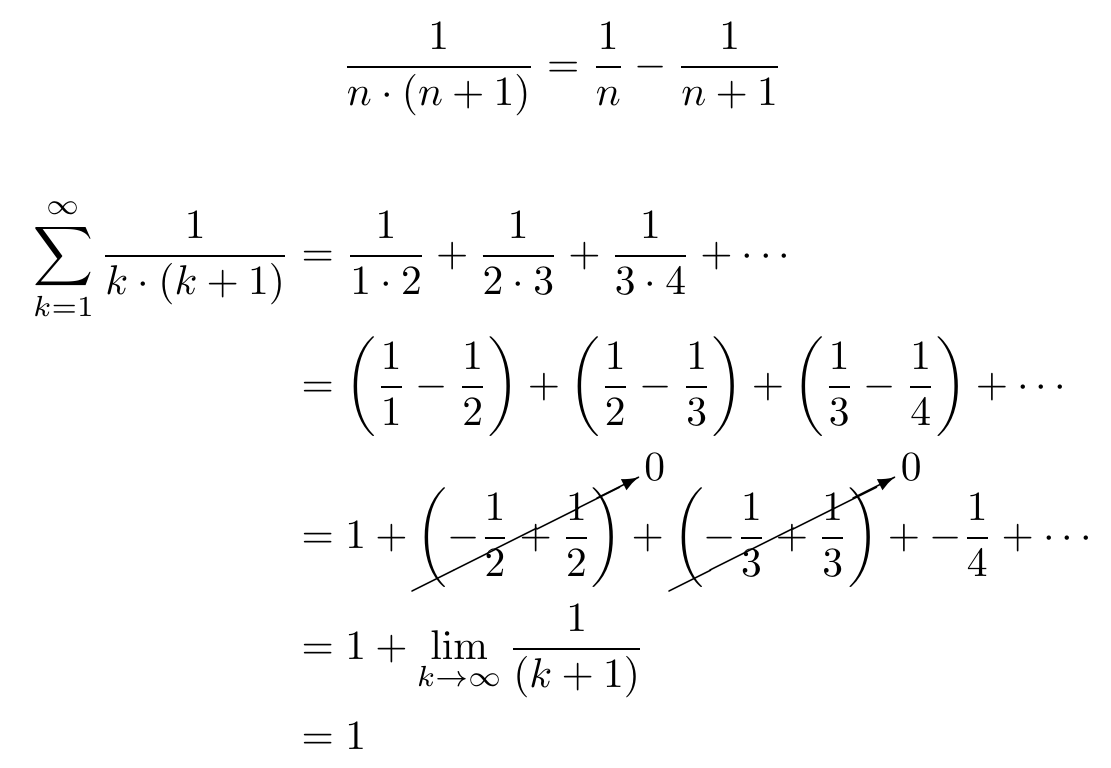Written a bit more explicitly (although I kinda handwaved away the final term--the point is that you end up with one unpaired term which goes to zero)

edit: I was honestly confused about how exactly this related to the question, but seeing the comment from @[email protected] (not visible from Hexbear) which showed that the first sum in the image is equivalent to
the sum from n = 1 to ∞ of 2/(n * (n + 1))
made things clear (just take the above, put 2 in the numerator, and you get a result of 2)
That's a long payoff for a practical joke, but totally worth it.
Also, unsurprisingly, they won the 2020 Ig Nobel Prize in Materials Science (lol) for this one (video of the ceremony, Ig Nobel "lecture" from the lead author (also the primary pooper))